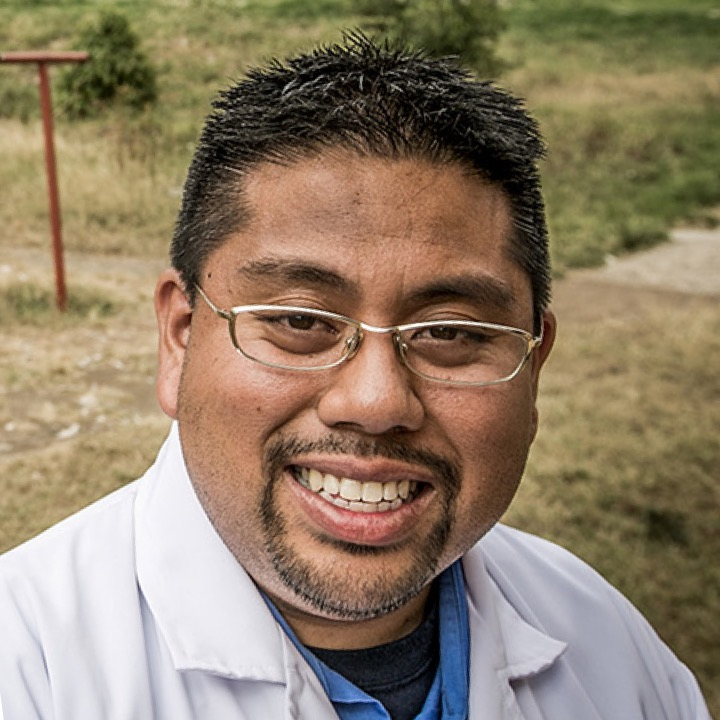Vector Molecular Biology Section
Established in 2002
Joshua R. Lacsina, M.D., Ph.D.
Assistant Clinical Investigator
Specialty(s): Infectious Disease, Internal Medicine Provides direct clinical care to patients at NIH Clinical Center

Major Areas of Research
- Human immunity to Leishmania parasites and to arthropod vector bites (ticks, mosquitos, and sand flies)
- Systems immunology of human skin inflammation: single-cell RNA-seq and multiomic spatial profiling
- Controlled human challenge studies of vector bites and vector-transmitted pathogens
- Mechanistic multiscale tissue modeling of skin inflammation
Program Description
We apply systems immunology approaches to investigate human cutaneous leishmaniasis, a disfiguring chronic skin disease caused by the protozoan parasite Leishmania.
Cutaneous leishmaniasis (CL) is endemic and emerging in the southwestern United States and often also affects military personnel who have been deployed to Leishmania-endemic areas. Leishmania parasites are transmitted to humans via the bite of an infected sand fly. As the disease progresses, the immune response to the parasite in the skin can trigger pathologic inflammation that leads to chronic ulceration and permanent scarring. Current therapies for CL are variably effective with increasing reports of drug resistance. A major roadblock to the development of novel therapeutics for CL is our incomplete understanding of human immunity to Leishmania in the skin.
Our group seeks to define the cellular circuits that drive pathologic inflammation and damage to skin tissue in CL. To do this, we employ a variety of experimental and bioinformatic approaches, including single-cell transcriptomics, multiomic spatial profiling, and mechanistic multiscale tissue modeling to map the cell subsets and intercellular signals that drive CL immunopathology. Current efforts are focused on constructing a comprehensive single-cell and spatial atlas of human CL. This work is being performed in collaboration with the NIAID Leishmaniasis Clinic (Principal Investigator: Dr. Elise O’Connell, Laboratory of Parasitic Diseases). Our goal is to develop novel host-directed therapies for CL patients that 1) inhibit the critical signaling circuits driving pathologic inflammation in the skin and 2) enhance immune control of the parasite.
Another major focus of our group is investigating human immunity to vector bites and vector-borne pathogens via controlled human vector challenge studies. The immune response to vector bites profoundly affects the susceptibility of the host to vector-borne pathogens. In collaboration with Dr. Matthew Memoli (Laboratory of Infectious Diseases), we performed a human challenge study using mosquitos and sand flies, which revealed a conserved transcriptomic skin response against highly divergent vector species. We are now using single-cell and spatial profiling to map the cellular circuitry of the human skin response to vector bites. Our goal is to develop novel clinical therapies that co-opt these responses to enhance protection against vector-borne pathogens.
Biography
Education
Ph.D., Pathology, 2012, Duke University, Durham, North Carolina
M.D., 2012, Duke University, Durham, North Carolina
A.B., Biochemical Sciences, 2003, Harvard University, Cambridge, Massachusetts
Dr. Lacsina received his M.D. and Ph.D. in pathology through the Duke University Medical Scientist Training Program. He completed his residency training and chief residency in internal medicine at the University of Washington. He completed his clinical fellowship training in infectious diseases at NIAID and conducted his fellowship research with Dr. Jesus Valenzuela, Deputy Chief of the Laboratory of Malaria and Vector Research (LMVR). In 2021, Dr. Lacsina was appointed as an assistant clinical investigator in the Laboratory of Immune System Biology through the NIAID Transition Program in Clinical Research and, in 2023, moved his research group to LMVR. Dr. Lacsina is board certified in internal medicine and infectious diseases.
Clinical Studies
- Diagnosis and Treatment of Leishmania Infections: NCT00344188
- Human Immune Response to Ixodes Scapularis Tick Bites: NCT05036707
- Sample Collection From Healthy Volunteers for Assay Optimization: NCT03538600
- Obtaining Solid Tumor Tissue From People Having Biopsy or Surgery for Certain Types of Cancer: NCT01915225
Selected Publications
Abdeladhim M, Teixeira C, Ressner R, Hummer K, Dey R, Gomes R, de Castro W, de Araujo FF, Turiansky GW, Iniguez E, Meneses C, Oliveira F, Aronson N, Lacsina JR*, Valenzuela JG*, Kamhawi S*. Lutzomyia longipalpis salivary proteins elicit human innate and adaptive immune responses detrimental to Leishmania parasites. bioRxiv. 2025 Mar 4; 2025.02.25.640210.
Lacsina JR, Kissinger R, Doehl JSP, Disotuar MM, Petrellis G, Short M, Lowe E, Oristian J, Sonenshine D, DeSouza-Vieira T. Host skin immunity to arthropod vector bites: from mice to humans. Frontiers in Tropical Diseases. 2024 May; 5:1308585.
Friedman-Klabanoff DJ, Birkhold M, Short MT, Wilson TR, Meneses CR, Lacsina JR, Oliveira F, Kamhawi S, Valenzuela JG, Hunsberger S, Mateja A, Stoloff G, Pleguezuelos O, Memoli MJ, Laurens MB. Safety and immunogenicity of AGS-v PLUS, a mosquito saliva peptide vaccine against arboviral diseases: A randomized, double-blind, placebo-controlled Phase 1 trial. EBioMedicine. 2022 Dec;86:104375.
DeSouza-Vieira T, Iniguez E, Serafim TD, de Castro W, Karmakar S, Disotuar MM, Cecilio P, Lacsina JR, Meneses C, Nagata BM, Cardoso S, Sonenshine DE, Moore IN, Borges VM, Dey R, Soares MP, Nakhasi HL, Oliveira F, Valenzuela JG, Kamhawi S. Heme Oxygenase-1 Induction by Blood-Feeding Arthropods Controls Skin Inflammation and Promotes Disease Tolerance. Cell Rep. 2020 Oct 27;33(4):108317.
Lacsina JR, Marks OA, Liu X, Reid DW, Jagannathan S, Nicchitta CV. Premature translational termination products are rapidly degraded substrates for MHC class I presentation. PLoS One. 2012;7(12):e51968.
Lacsina JR, LaMonte G, Nicchitta CV, Chi JT. Polysome profiling of the malaria parasite Plasmodium falciparum. Mol Biochem Parasitol. 2011 Sep;179(1):42-6.

